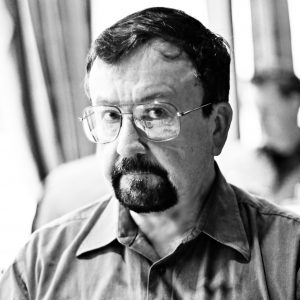By Dave Zuchowski, ‘Burgh Vivant
Pittsburgh Festival Opera announces Semi-Finalists for the Mildred Miller International Voice Competition. Emerging vocal artists between the ages of 18 and 35 who are accomplished but not yet able to sustain themselves in their profession, will compete for cash prizes as well as be given a chance to be cast in solo roles for the company’s 41st season.
The competition is named for the company’s founder, opera diva Mildred Miller, who firmly believes in supporting young singers. This year’s Seventh Mildred Miller International Voice Competition is scheduled for October 21 (the Semi-Final Round) and October 22 (the Final Round). According to Joel Goodloe, associate artistic director, 250 singers applied for the competition from 18 countries.
Eight singers, selected by the judges from Saturday’s Semi-Final Round pool of 20 candidates, will present arias during the Final Round. From these eight finalists, three will be selected as winners and a fourth will be chosen as “Audience Favorite.” Winners receive cash prizes ranging from $4,000 to $6,000 as well as offers for resident artist contracts in Pittsburgh Festival Opera’s 2018 summer season.
Besides Ms. Miller the other judges on the panel include Robert Chafin, Assistant Professor of Voice, West Virginia University School of Music Jonathan Eaton, Artistic Director of Pittsburgh Festival Opera and Professor of Music/Margot and Bill Winspear Chair in Opera Studies, University of North Texas Timothy LeFebvre, Associate Professor of Singing, Oberlin College Conservatory Jane Eaglen, Professor of Voice, New England Conservatory, Internationally acclaimed Wagnerian soprano.
In addition to being a member of the judging panel, Rob Chafin also serves as the Young Artist Program Director for Pittsburgh Festival Opera. He took time out of his busy schedule to answer a few questions about the competition:
Q: Rob, I understand that each of the contestants get to pick five vocal selections for their audition and start off with one of these as their first choice. After listening to the first selection, the judges then confer and pick a second selection from their list.
A: Each contestant is given roughly ten to 15 minuets before the panel of judges and accompaniment is provided by Pittsburgh Festival Opera via James Lesniak, associate coach at Pittsburgh Opera and Stephen Varianes, head coach for Pittsburgh Festival Opera. At the end of Day One, the judges pick 8 of the 20 singers who go on to the finals the following day. One Day Two, they will again perform two songs from their pre-selected list. Cash prizes of $6,000, $5,000 and $4,000 are awarded the first, second and third place winners, with another $1,000 going to the winner of an Audience Favorite Award. On day two, the singers again select their first piece, then the judges will ask for another selection. Sometimes, the panel might chose to request a third piece, or a part of an aria or song, depending on time, to help with evaluating the singers. The judges try to ask for contrasting selections to help narrow down the field in the semi-finals and to award the prizes at the finals. Cash prizes for first, second and third are awarded to the winners during the competition, with an extra $3,000 given to those winners who come to Pittsburgh Festival Opera and sing a role with the company. The Audience Favorite Award is determined at the conclusion of the final round by the people in attendance and is then given at the Award’s Ceremony following deliberation by the judges. Sometimes the Audience Favorite and the judges’ decision are not the same, and that is what makes a competition so exciting. In order to assure fairness and clarity, the judges use a point system, listening to the singers and then ranking them based on many factors . We want to select complete musicians that would be ready to accept a leading role in a company, looking at such things as vocal color and beauty of tone, language skills, musical and artistic expression, dramatic energy and engagement to the text.
Q: As a judge, what do you look for in a singer and how does the panel finally manage to arrive at their final decisions?
A: Of course, a beautiful voice, produced in a healthy way, and the ability to sing with musicality is important, but I look for that singer who can make me put down my pencil or pen and just listen to their story. A chance to just sit back and relax and experience the talent they bring to the competition.
Q: In the same vein, how do you judge 20 singers, all of whom have great voices and are different performers, different genders, different voice types? What are some qualities a successful singer should have? What is the “it” factor?
A: As a competitor in these situations, it is often difficult to relax and be spontaneous, but that is something that makes a difference between winning and doing well. And, these days, singing is getting better and better, and the competition is fiercer. So my suggestion to emerging artists is to find YOUR voice and sing without pressure, because it is that unique talent and sound that will help you move forward in your career path. A successful singer needs a solid technique, nerves of steel and the ability to act without being over-the-top. In other words, be so prepared that you can forget all of that when you go out and announce your first piece and just show what you can do. Mesmerize us – make us laugh – make us cry – but, make concrete choices that will show us where you are. I think the thing that younger singers need to realize is that the judges are there and WANT you to do your best.
Q: How does Pittsburgh Festival Opera connect rising singers with professional opportunities through the competition and to its season through training, roles and more?
A: During the summer, we try and connect the young artists with the directors, conductors, pianists and singers through coaching and different sessions. But, the networking happens all summer. As we come together at the first “death-by-aria” meeting, when all young artists arrive, we listen to each other, and the teaching and directorial staff have a chance to get acquainted to the singers again. Then, we make decisions on what the singers need and who would work better with the different young artists.
The Semifinal Round is scheduled from 11 a.m. and 1 p.m. and from 3 p.m. to 6 p.m. on October 21 at the Kresge Theater on the campus of Carnegie Mellon University, and the public is invited to attend free of charge although advance reservations are strongly recommended.
The Final Round is from 2 to 5 p.m. on October 22 at the Frick Art and Historical Center, 7227 Reynolds Avenue in Pittsburgh’s Point Breeze neighborhood. WQED-FM’s Jim Cunningham will host the Final Round.
For more information about the Pittsburgh Festival Opera, click here.



